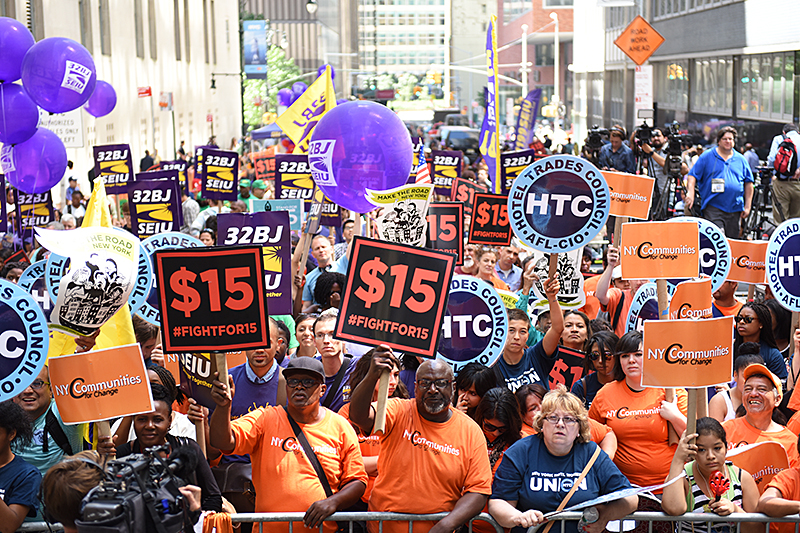Minimum wage is the smallest amount of money per hour that an employer may legally pay a worker. It may be established by law to cover all workers or only those in certain industries. Self-employed persons and employees of small businesses are often not covered by minimum wage laws. Minimum wage laws are intended to raise wages for low-income workers without substantially reducing their job opportunities. Economists, however, do not agree on whether the minimum wage is an effective tool. Some economists assert that employers do not hire as many low-income workers as they would if no minimum wage existed. Numerous academic studies, however, show little to no such negative effect and find that increased minimum wages can reduce employee turnover.

In the United States, the minimum wage may be set at the federal, state, or local level. Federal minimum wage legislation became effective when the Fair Labor Standards Act was passed in 1938. The original act established a minimum wage of 25 cents per hour for 1938. The federal minimum wage has been increased a number of times by amendments to the Fair Labor Standards Act. The latest amendment, passed in 2007, called for raising the minimum wage to $5.85 an hour in 2007, to $6.55 an hour in 2008, and to $7.25 an hour in 2009. Prior to the passage of this amendment, the minimum wage had stayed at $5.15 for nearly a decade.
In addition to the federal minimum wage, more than 40 U.S. states have minimum wage laws or boards that set minimum wages. The first state law was passed in Massachusetts in 1912. Beginning in 2014, a number of cities and counties began adopting laws that established minimum wages substantially higher than the state and federal minimums. In instances in which the local, state, or federal minimum wages are not the same, an employer is obliged to pay the higher of the minimums.
New Zealand passed the world’s first national minimum wage laws in 1894. In 1907, Australia became the second country to pass minimum wage laws. In Australia, minimum wages are determined annually by the Minimum Wage Panel of the Fair Work Commission. In Canada, each province or territory sets its own minimum wage. There is also a minimum wage for employees of the federal government. In the United Kingdom, a national minimum wage went into effect in 1999. In some European countries, labor unions and employers establish unofficial minimum wages by agreement.
